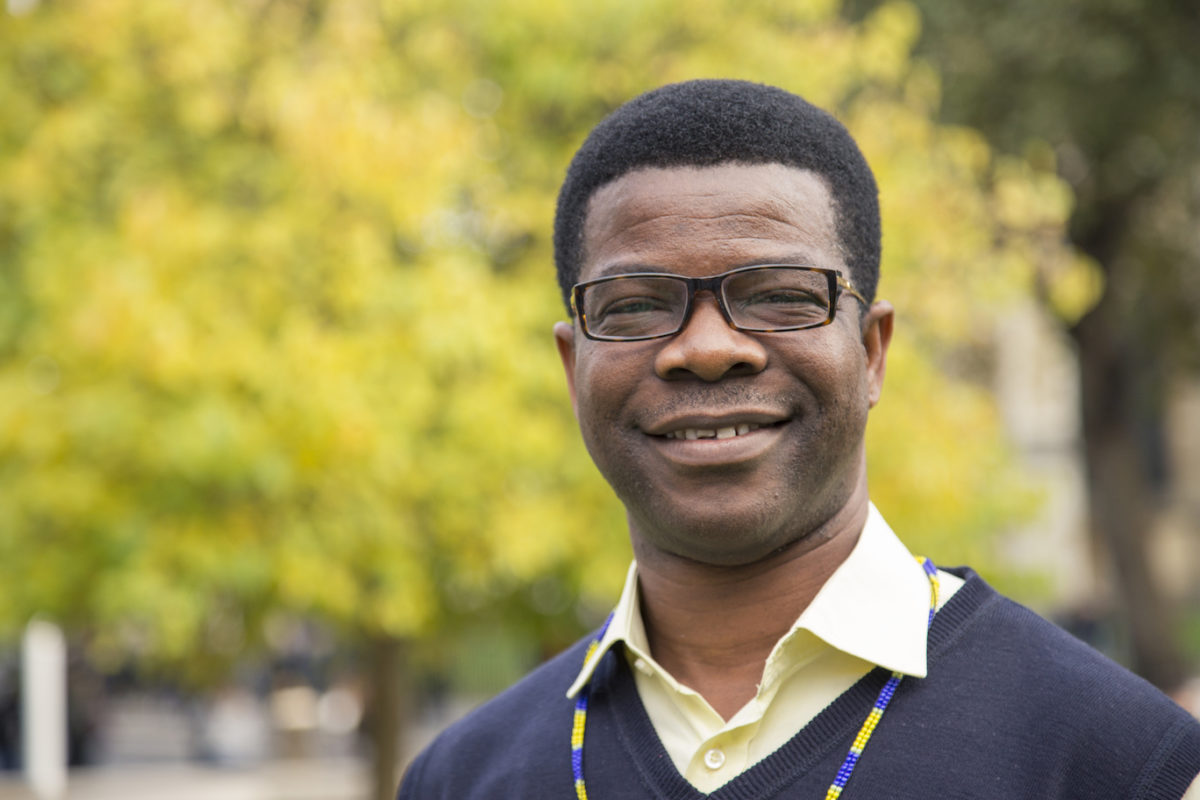Nigerian scientists are engaging large numbers of diverse farmer groups to help them evaluate new varieties of cassava in research that is already revolutionizing cassava breeding around the world.
Typically considered a “poor man’s crop” in sub-Saharan Africa, cassava is the fourth most consumed food staple in the African continent after maize, rice and wheat. But the critical food security crop faces myriad challenges, including insect pests, weather-related problems, a scarcity of disease-free cuttings for new plantings, a host of diseases and even access to markets.
Nigerian geneticist Chiedozie Egesi, senior scientist at the International Institute of Tropical Agriculture (IITA) in Ibadan, is leading a research team striving to overcome these problems by developing and releasing several improved varieties of cassava, including one fortified with vitamin A. They are part of the Next Generation Cassava Breeding project (NextGen Cassava), an initiative funded by the Bill & Melinda Gates Foundation and UK Aid from the United Kingdom.
Researchers engaged in the project, which began in 2012 and runs through 2023, have made major strides in understanding cassava’s genome and flowering. This has allowed them to shorten the time it takes to develop hardier new cassava varieties that improve yields.
An important component of their research is working with a range of farmer groups to evaluate many different aspects of the new varieties.
“We engage in participatory evaluations where the voices of the farmers are considered before a decision regarding the specific variety to be released is made,” Egesi explained. “Often, we engage with them to determine what is of paramount interest to the farmers, especially those of the women who usually process the cassava, market the products and prepare the meals.
“We need to ensure that the varieties meet the agronomic expectations of high yield, especially when compared to those previously grown by the farmers,” he continued. “Also, that when they produce their garri or fufu from them that they are competitive in quality so that it translates to higher income or premium for the farmers. We pay attention to the salient, often nuanced characteristics that women consider in garri, such as stretchability, consistency, etc.”

The NextGen team has come up with eight varieties that are among those being tested in national variety release trials in 10 states across Nigeria’s cassava-growing agroecologies. This year the trials will include the participation of farmers, who will evaluate the performance of the new varieties in the field. Those that do well are on track for commercialization in 2020.
Egesi, who was recently appointed adjunct professor of plant breeding and genetics at Cornell University and serves on the Cornell Alliance for Science Advisory Board, staunchly believes that cassava can be the engine that will revolutionize agriculture, especially in Africa. He supports adaptive cassava breeding programs that are being undertaken by National Agricultural Research Systems in several African nations.
Though Egesi’s work is based in Nigeria, it’s already having a global impact. The NextGen champion said his team has established Cassavabase, an open-access database of cassava genomic information that is publicly available to everyone in the world. It’s already attracted interest from people in Brazil, Colombia, Thailand, Cambodia, China, India, USA, Ghana, Uganda, Tanzania, Kenya, Zambia, Malawi, Sierra Leone, Cote d’Ivoire, the United Kingdom and many other nations.
“The global implication here is that the solution to a global problem [cassava virus diseases] is being delivered to the world through our technologies,” he said. “The genomic tools we developed here in Nigeria are now being used to breed for virus resistance in Asia, South America and Africa.”
